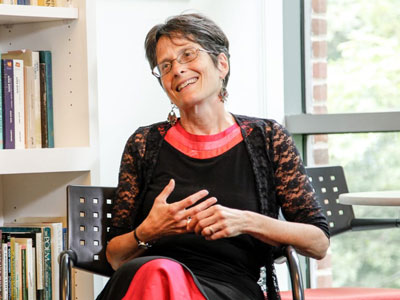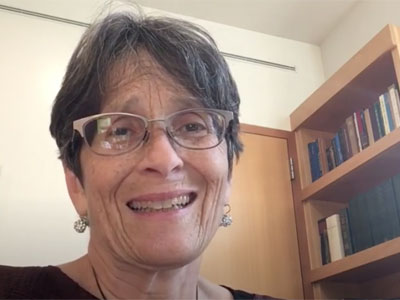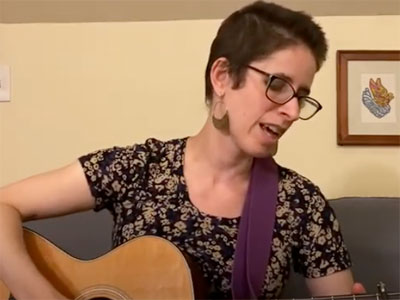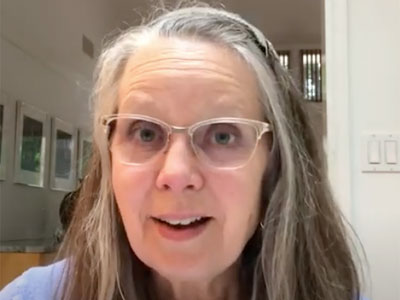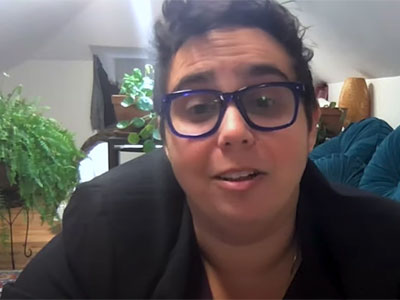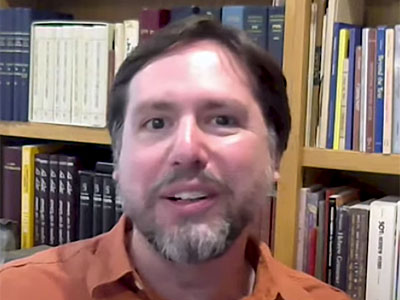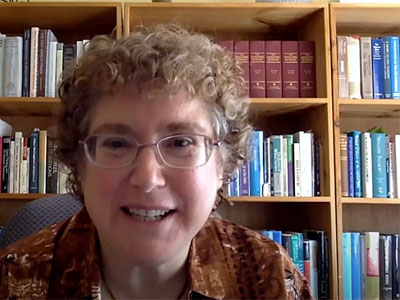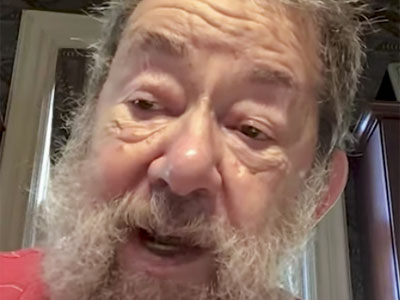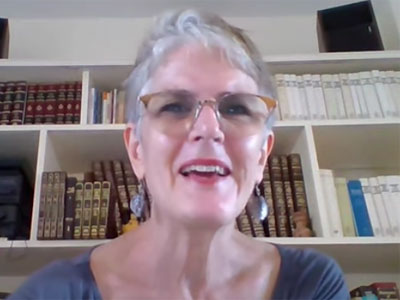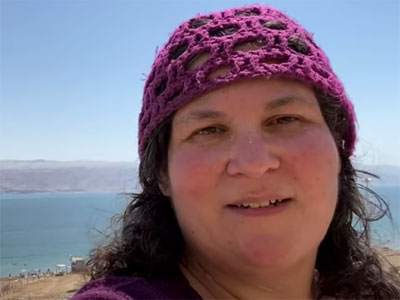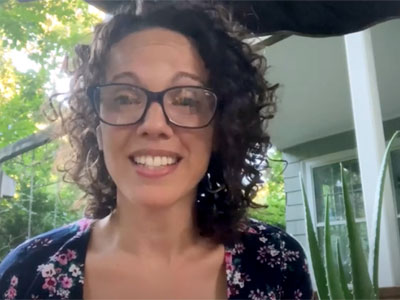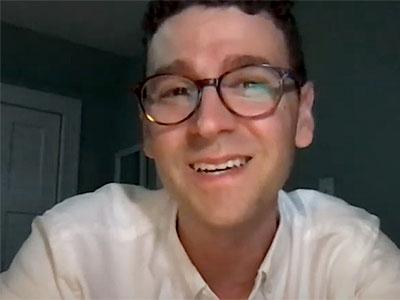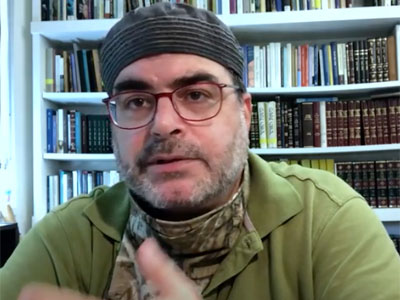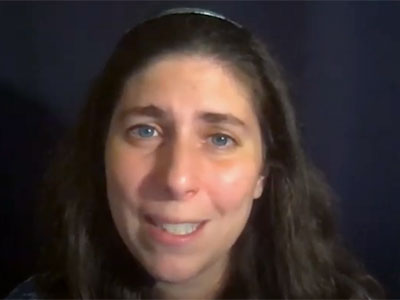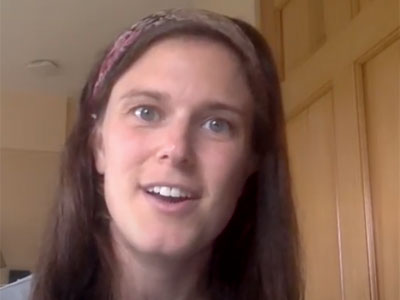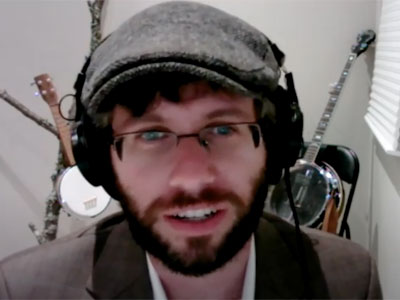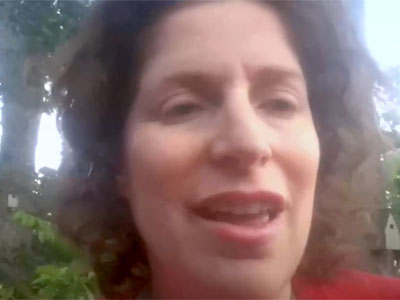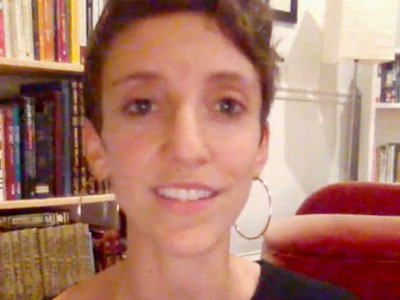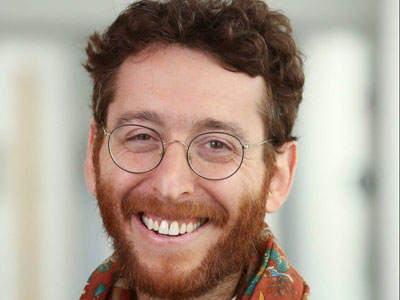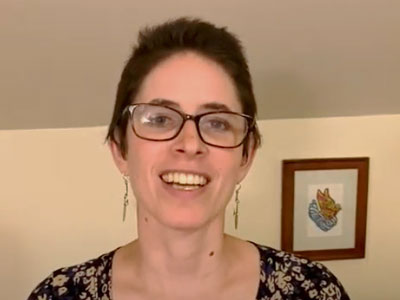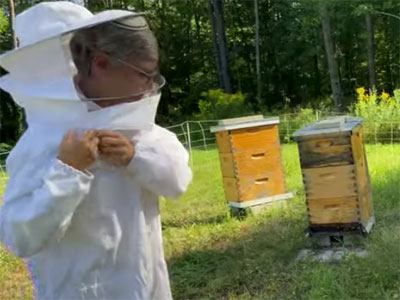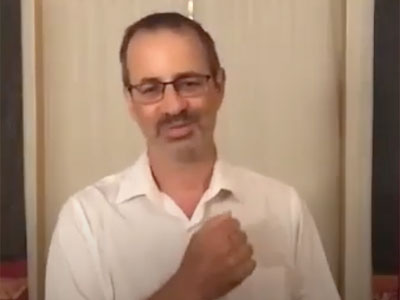Join us!
Preparing for the High Holidays in a Time of Upheaval
Elul, the month leading up to the High Holy Days, is traditionally an opportunity for introspection, reflection, and self growth. In response to the isolation of the pandemic, Hebrew College has launched Elul Together: Preparing for the High Holidays in a Time of Upheaval. The project brings teachings, music, and the sound of the shofar into the homes of our broader community during this time of isolation.
Each week of Elul, we post videos, art and journal prompts to accompany you through the next week of High Holy Day preparation. Watch, listen, write, make art, and share your reflections on social media with #ElulTogether. We’re in it together.
Week One | Week Two | Week Three | Week Four
Elul: Celebrate and Reflect
Week Four Prompts
Art Prompt
 By Rabbi Adina Allen`14 of The Jewish Studio Project
By Rabbi Adina Allen`14 of The Jewish Studio Project
According to the Hasidic master Rabbi Kalonymous Kalman Shapira, teshuva – the foundational practice of the High Holy Day season – is a creative process (Machzor Lev Shalem). More than a simple return to what has been, he writes, teshuva is a process for creating ourselves anew. How do you understand this conceptualization of teshuva? What mindsets, skills, and tools can you imagine utilizing in creating yourself anew?
Text Prompt
 By Rabbi Jordan Brauning `14
By Rabbi Jordan Brauning `14
Dear Elul Writers,
I am on my way back from meeting my newest nephew, eight-days old today. There is nothing quite as breathtaking as new life; so fragile and full of promise. Holding a newborn, I am instantly aware of the sweet intermixing of awe and gratitude and delight. These past few days I’ve had the pleasure of witnessing tremendous joy and I am reminded of a poem by the poet Naomi Shihab Nye entitled, So Much Happiness. The final stanza reads,
Since there is no place large enough
to contain so much happiness,
you shrug, you raise your hands, and it flows out of you
into everything you touch. You are not responsible.
You take no credit, as the night sky takes no credit
for the moon, but continues to hold it, and share it,
and in that way, be known.
Without taking credit for our experiences of happiness it is possible to share these moments of euphoria, “to let them flow out of you into everything you touch.”
Prompt
On this day of Elul, I encourage you to consider how you can both hold/appreciate and share some of the joy in your life. It is possible, at times, to fear that any outward expression of our happiness will come off as a humble brag or salt in the wound to someone who is struggling. How can you own your moments of contentment, hold them and savor them? How in the year to come can you let the joy that you experience seep into the world around you? Is it possible to reimagine our experiences of exuberance not as a secret asset to be stashed away, but as a little gift that can be appreciated before being passed along?
Week Three Prompts
Art Prompt
 By Rabbi Adina Allen`14 of The Jewish Studio Project
By Rabbi Adina Allen`14 of The Jewish Studio Project
According to the Hasidic master Rabbi Kalonymous Kalman Shapira, teshuva – the foundational practice of the High Holy Day season – is a creative process (Machzor Lev Shalem). More than a simple return to what has been, he writes, teshuva is a process for creating ourselves anew. How do you understand this conceptualization of teshuva? What mindsets, skills, and tools can you imagine utilizing in creating yourself anew?
Text Prompt
 By Rabbi Jordan Brauning `14
By Rabbi Jordan Brauning `14
“Inscribe us for life.” As the new year approaches, we return to the image of a great book in which we hope to have our names written. Even as this essential symbol of the Days of Awe challenges our theology, it remains poignant and powerful. The Chasidic masters, ever the subverters of metaphor, maneuver around the notion of a mere Divine ledger keeper. They had as little interest as we do in a cosmic Santy Claus, keeping track of the naughty and nice. For the Sefat Emet, the physical book falls away and we become the texts; “life” he asserts, is written in our hearts. The great mystical teacher of Ger (small, Polish town), reminds us that we each have a point of holiness within us and this is where the Divine engraves “life.” Unfortunately (and unsurprisingly), this point of holiness becomes obscured in the midst of our year. As the seasons cycle past we become accustomed to the daily missteps, our ordinary transgressions, and the imprint of “life” upon our soul becomes covered/illegible. For those of us who have seen our aspirations grow less urgent in the months after the holidays, this feels very familiar. So, when we ask to be inscribed for life as the new year approaches, what we are asking for is a renewal of that which is already within us. We don’t need to beg for life, rather we need the reminder that it sings out from within us.
Prompt
One of the aspects that I like most about this metaphor of “inscription” is that it places a pen in the hand of the Holy One. While I’m the first to admit that anthropomorphic images of the Divine are fraught, they can also really open up some beautiful metaphorical possibilities. In this case, we have the ability to see our own writing as an act of living in the Divine image. Today I encourage you to think about the words that you’d like to inscribe in the Book of Life for this year. Whether that text is internal or supernal, imagine the words that you want etched for 5781 and then write them.
Week Two Prompts
Art Prompt
 By Rabbi Adina Allen`14 of The Jewish Studio Project
By Rabbi Adina Allen`14 of The Jewish Studio Project
According to the Hasidic master Rabbi Kalonymous Kalman Shapira, teshuva – the foundational practice of the High Holy Day season – is a creative process (Machzor Lev Shalem). More than a simple return to what has been, he writes, teshuva is a process for creating ourselves anew. How do you understand this conceptualization of teshuva? What mindsets, skills, and tools can you imagine utilizing in creating yourself anew?
Text Prompt
 By Rabbi Jordan Brauning `14
By Rabbi Jordan Brauning `14
I just officiated at the wedding of two friends and have slipped out of the dancing and the merriment to write to all of you. Only fifty feet from me the sound of unfettered simcha/joy can be heard (literally, “I Want To Dance With Somebody”) and it beats with the steady rhythm of newly synched hearts. Still, the breaking of the glass reverberates in my soul. The happiness and the brokenness are both here; there is room for everything. Here is a poem that I penned for the occasion.
In the aftermath of the smash
are cries of “mazel tov!”
“Good luck, lovers” with all the broken bits-
with the shards and the sorrow.
“Best wishes” for love
in a time of calamity.
Somewhere between a cruel joke
and a stone-cold, fearless look at
things as they are.
We don’t end our rituals with a kiss
but rather by beginning the perilous work
of cleaning up the sharp pieces.
Hunched together over a napkin
that holds the whole shattered world,
we’re expected to piece it back together
with love and with patience and with tender attention
to all the places we’ll be cut.
Prompt
On this day of Elul I invite you to reflect on a place in your life where joy and sorrow are inextricably linked. How can you make room for the presence of the entire range of emotions? How might you appreciate your happiness more for its co-mingling with sadness, and vice versa?
Week One Prompts
Art Prompt
 By Rabbi Adina Allen`14 of The Jewish Studio Project
By Rabbi Adina Allen`14 of The Jewish Studio Project
According to the Hasidic master Rabbi Kalonymous Kalman Shapira, teshuva—the foundational practice of the High Holy Day season—is a creative process (Machzor Lev Shalem). More than a simple return to what has been, he writes, teshuva is a process for creating ourselves anew. How do you understand this conceptualization of teshuva? What mindsets, skills, and tools can you imagine utilizing in creating yourself anew?
Text Prompt
 By Rabbi Jordan Braunig `14
By Rabbi Jordan Braunig `14
Now that this month of introspection and recalibration is (almost) upon us, the question is, what will we do with it? The start of the new year is ordinarily an opportunity to reset, to leave behind and to return, but we are exceedingly aware in this moment that we are not done with the anxiety and the loss of this time. This year it feels like we will be asked to do our intention-setting with an understanding that we are still in the thick of it.


